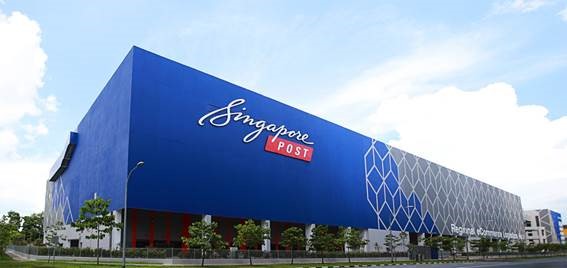
SingPost may be floated soon in one of S'pore's biggest IPOs
Singapore Telecom may soon float its postal arm Singapore Post – in what could be the biggest local public float in recent times after port operator PSA Corporation and Singapore Power decided to delay their listings.
SingTel will conduct a beauty parade tomorrow for advisers on strategic options and the planned divestiture and listing of SingPost, which according to one investment banker is one of the world's most profitable postal services.
All the big names in investment banking – such as Goldman Sachs, Salomon Smith Barney, Merrill Lynch, UBS Warburg and Credit Suisse First Boston – are expected to participate in the exercise. The investment banking or corporate finance arms of the local banks are also believed to be taking part.
Sources say the move is an effort on SingTel's part to enhance the value of SingPost – and in doing so, its own shares, which have taken a beating in recent months and are languishing near historic lows. SingTel reported a 19.5 per cent drop in net earnings to $1.98 billion for the year ended March 31, 2002.
The divestment exercise will also free SingPost management to raise the profile of the entity, boost its brand name and expand its business through diversification.
The investment bankers have also been asked to provide other strategic options for SingPost, which for the year ended March 31, 2002 reported a 4 per cent rise in revenue to $354.5 million from $341 million previously.
While no profit figures were given for the financial year just ended, SingPost reported net earnings of $113.2 million for the financial year ended March 2001 and $102.2 million the year before. This translates to a return on turnover of 30.5 per cent and 29.2 per cent for the two years, while the return on average shareholders' funds ($730.51 million at end March 2001) was 16.4 per cent and 16.2 per cent.
SingPost, with 2,235 staff at end-March, boasts a one-stop solution to customer needs in mail management, communicating information and distributing goods locally, regionally and globally.
It processes and delivers more than two million mail items daily, and provides courier services locally and internationally.
It has more than 60 main branches and over 90 authorised agencies island-wide. At its retail counters, customers can obtain postal, telecommunication and agency services such as the payment of utility bills.
As part of an effort to diversify from providing purely mail services and to go global, SingPost has entered into a joint venture with European counterparts TPG and Consignia to provide innovative customised mail logistics solutions.
It is also moving to forge ties with freight and distribution companies in the region and in April last year took a 40 per cent stake in S-Net Freight, a global freight transportation and logistics company.
from Dow Jones
SingPost IPO Planning Underway
May 14, 2002 — Hasan Jafri and Sai Man, Dow Jones: "Singapore Telecommunications Ltd. (P.SGT) could raise as much as S$1 billion (US$1=S$1.8049) by spinning off its wholly-owned postal services unit, analysts and investment bankers say. Southeast Asia's largest telecoms company said Tuesday spinning off SingPost is part of a strategic review of its businesses, now underway. The usual way to go with these kind of sales is through an initial public offering – Deutsche Telekom (G.DTL) sold two years ago half of Deutsche Post (G.DEP) through an IPO – but there are still no firm decisions on SingPost. The money yielded from a full sale will boost SingTel's sagging earnings, help cut its S$9.9 billion debt and further define SingTel as a regional data services and mobile communications company. That S$1 billion price tag, should SingTel decide to sell the entire company, is based on the assumption of the deal being priced at around 10 times SingPost's current earnings. 'It's very preliminary. They (SingTel) haven't yet decided what to do or whom to hire as adviser,' one banker who declined to be named told Dow Jones Newswires, adding that banks will make their proposals this week. But selling a postal service in a saturated market where the use of the Internet is among the highest in Asia may not be that popular with investors wary of businesses that offer little growth potential, some analysts and fund managers argue. They add SingTel could also find it tricky to price the unit above its own valuations, currently considered high. For a successful IPO, SingPost will have to be priced above the parent's current multiples of 16 to 19 times earnings. At that level, SingPost will be more expensive than, say, Deutsche Post, which trades at around 11 times earnings. 'How would you expect SingPost to trade at a higher level than Deutsche Post,' said one analyst who continues to recommend investors sell SingTel shares, currently trading near all-time lows. However, other analysts point out a direct comparison is difficult to make with Deutsche Post, which owns substantial banking and logistics business in addition to postal services."
Dow Jones: "SingPost, which became a wholly-owned SingTel unit in 1992, has some 60 main branches, 90 authorized agencies and another 70 electronic postal units called Self-service Automated Machines that provide postal and billing services to four million Singapore residents. It also enjoys a state-protected monopoly till 2007. SingPost's services also include a logistics business that leverages on Singapore's role as a regional logistics and shipping hub. SingTel could pitch SingPost more as a logistics company than a post office, bringing it in direct competition with companies such as U.S.-based United Parcel Service of America Inc. (UPS), which also uses Singapore as a regional hub. SingPost's revenue rose 4% to S$354.5 million in the year ended March 31, boosted by higher domestic postal rates implemented in November 2000. But mail volume rose just 0.9% on year. SingPost is estimated to have earned a net profit of around S$115-S$133 million in the year ended March 31, making it a relatively high margin business based on its revenue. The company employs some 2,200 people."
Dow Jones: "Tjandra Kartika, an analyst at GK Goh Securities in Singapore, says SingTel can gain from spinning off SingPost without hurting operationally as SingPost accounts for just 5% of SingTel's S$7.3 billion in annual revenue. From a strategic point of view, spinning off SingPost makes sense, because it would allow SingTel to focus on its core business of telecoms without being fettered by a low-growth industry. 'SingPost sticks out like a sore thumb. It doesn't make sense for SingTel to hold onto this asset,' says another analyst who declined to be named. Of more immediate importance, a spin off could be the perfect temporary solution to placate investors who have been critical of SingTel's lack of an earnings-growth story. While gains from a share sale would likely be a one-off move, it could help offset earnings weakness from its Australian SingTel Optus unit, which it bought last year. Optus will account for about half of SingTel's total revenue in 2003, but won't reach a cash flow break-even point until 2004, analysts say. Analysts say this could help revive SingTel's share price, which is struggling just off a record closing low of S$1.49. SingTel closed flat midday at S$1.50. A possible SingPost IPO will also be a bonus for business-starved investment banks reeling from the government's decision to delay the privatization of port operator PSA Corp. and Singapore Power Pte Ltd. – two of Singapore's largest government-held companies. UBS Warburg, a unit of UBS AG (Z.UBS), Goldman Sachs Group Inc. (GS), Credit Suisse First Boston Corp. (X.CSF), Salomon Smith Barney, a unit of Citigroup Inc. (C) and Merrill Lynch & Co. (MER) are reported to be among banks pitching to earn the advisory business." (Source: Dow Jones, Hasan Jafri and Sai Man reporting)












